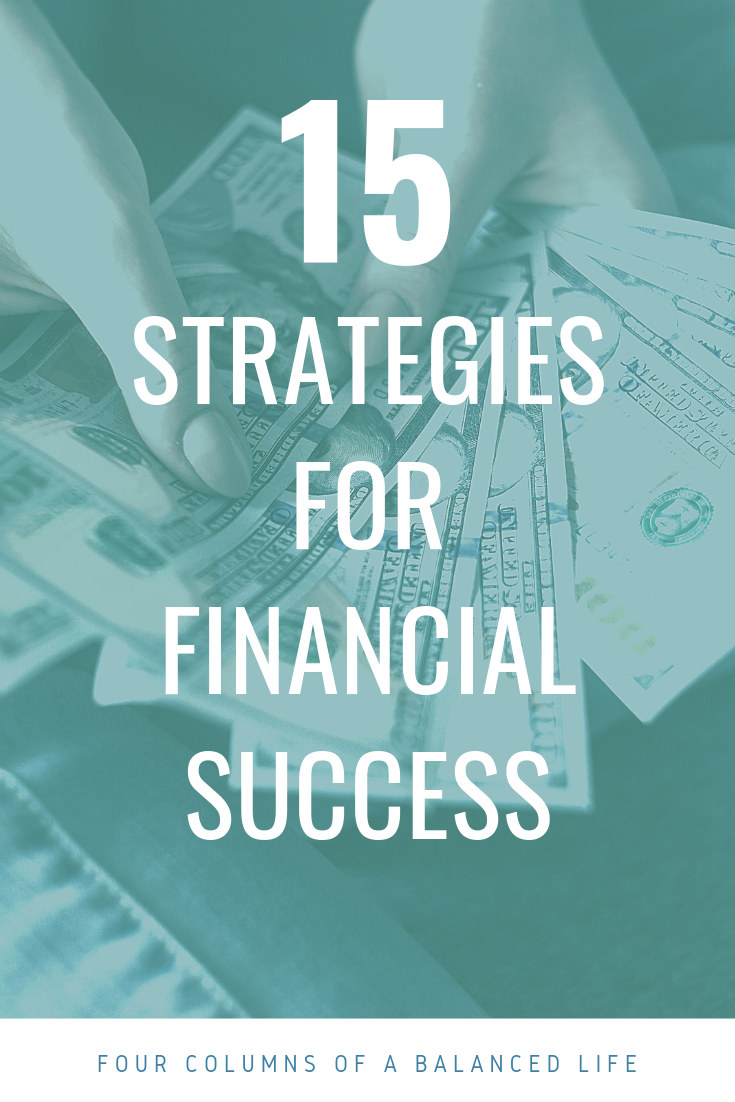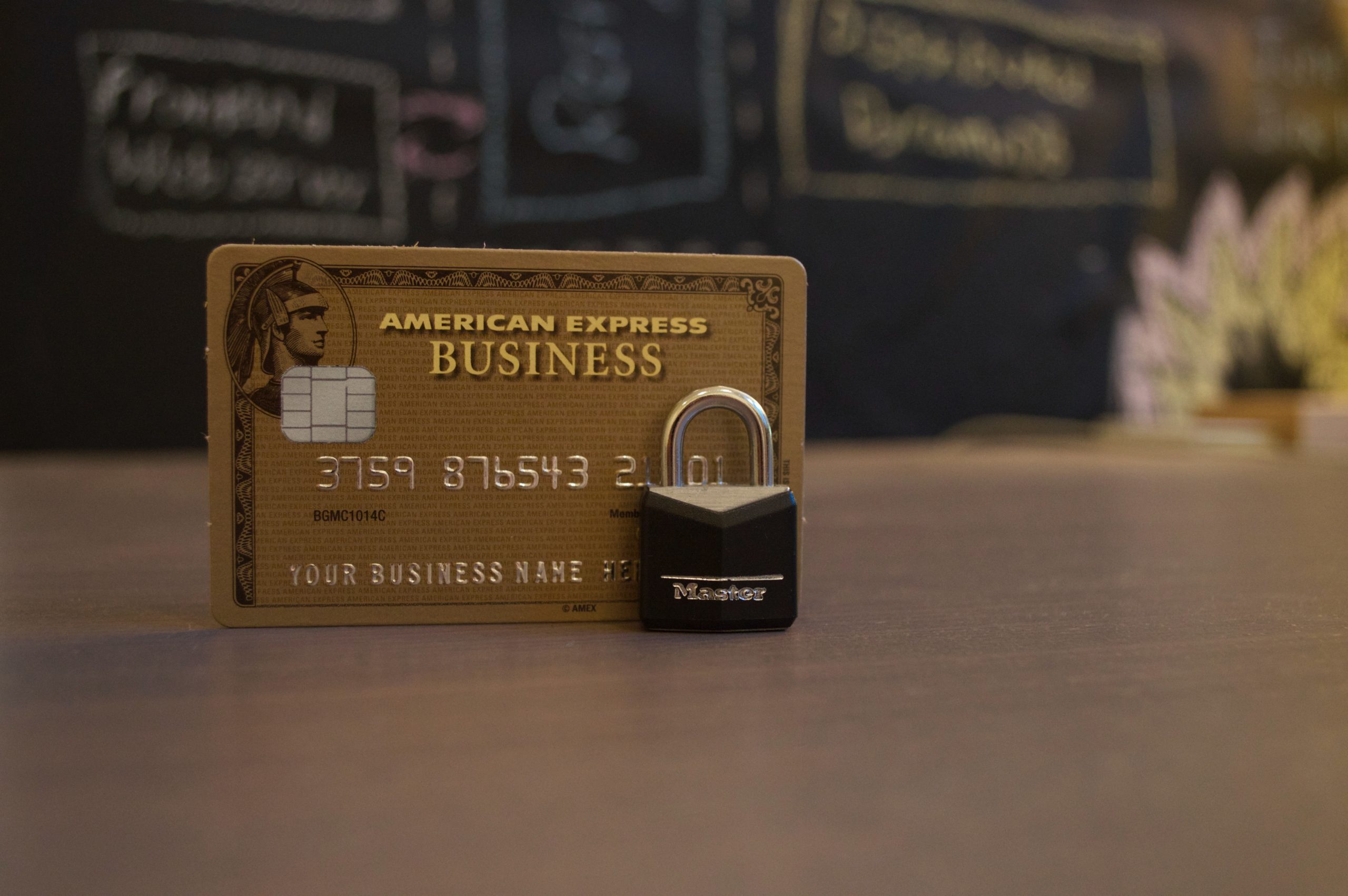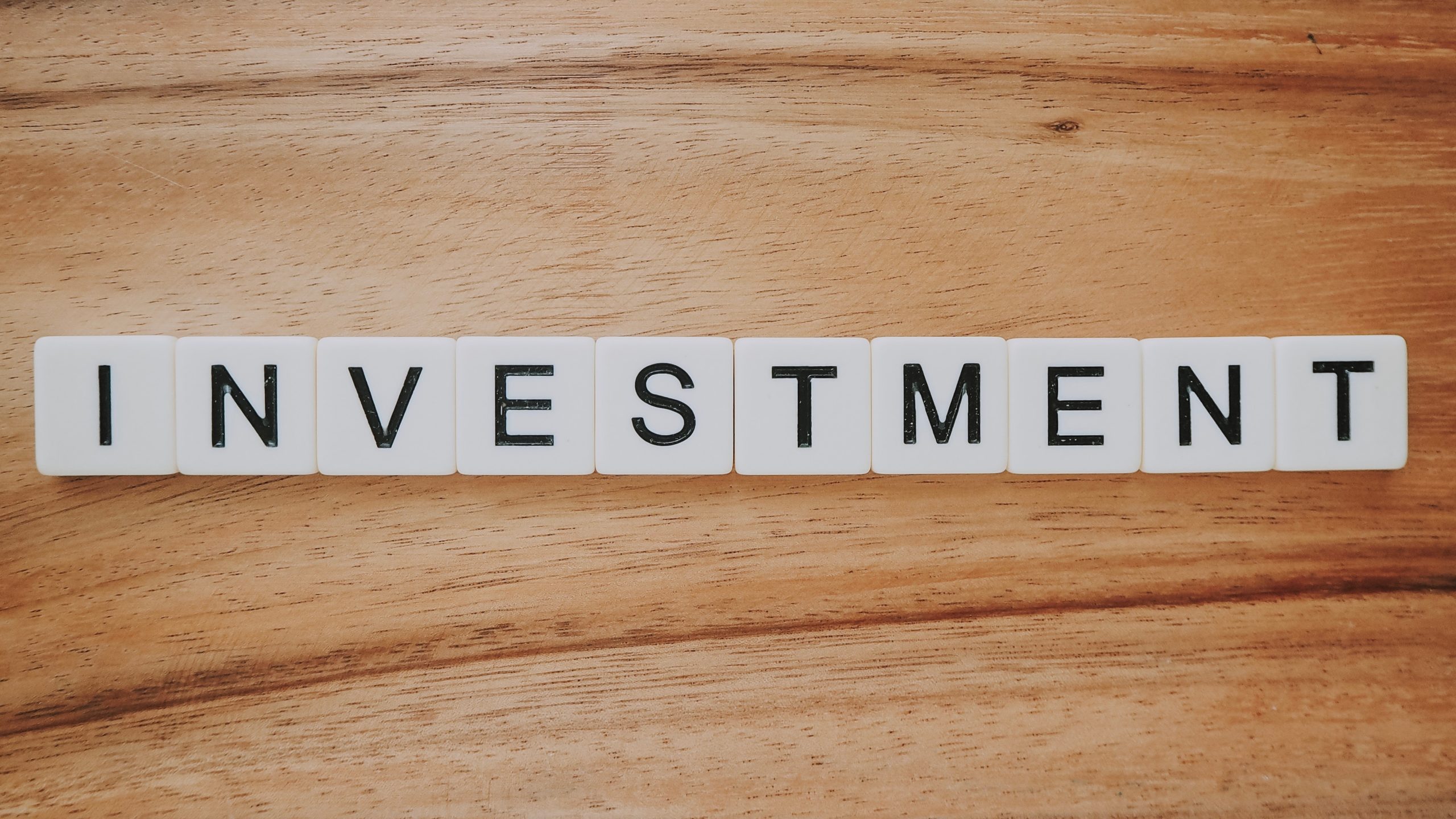15 Strategies For Financial Success

The strength of your personal financial resources is equivalent to the quality of your financial decision making. –Wayne Charisa

What is financial success
Financial Success is how you define what is most important to your happiness.
It was my first week at the brokerage firm on Bay Street. David Wilkes pulls me into the office and tells me ‘Jerry, I am going to give you three pieces of advice. In other words, buy a small house, keep the first wife, and drive your car for at least 15 years.’ A great piece of advice from one of the most successful advisers on Bay Street. David was great at investing his money. He was one of the best entrepreneurs I have met. As a result, I have listened to the above advice, and here are my 15 strategies for financial success.
Write down your goals

It is important to write down your financial goals. It is your blueprint and vision for your financial success for instance.
Know the difference between wants and needs. Food, shelter, heat, hydro and water are needs in order to sustain your life. In addition, wants are cappuccinos, going to the movies, vacations, and an expensive watch. Make sure needs are covered and then take care of wants.
Set short term (less than a year), medium (1 to 5 years), and long-term goals (more than 5 years). Be precise, realistic; set a time frame and a dollar amount. Write beside the goals whether it is a need or a want. Figure out the cost of each goal, how many months you need to achieve it, and then how much money you need to save each month.
Create a budget

A budget is how you will spend your money in any given year. The budget tells you how much money you will have for the things you want to purchase. In my two decades of voluntary counseling, every single person who was ever referred to me never had or followed a budget. In other words, a budget also allows you to live within your means and gets you a step closer to financial success.
Create an emergency fund

As the name suggests, this is for emergencies. What happens if you are laid off? What happens if you are in an accident? The dishwasher breaks down or you need winter tires. In conclusion, open a high-interest account at a bank and have at least 6 months of your salary saved up in this account.
Pay off your debts

A Globe and Mail survey in 2018 found 48 % of Canadians live paycheck to paycheck. This is a stressful situation. Is it really worth carrying credit card debt at 21% interest? Once you are debt-free, you are not at the mercy of the lenders or anyone. You are free and can live life as you choose. Imagine if you paid off your mortgage, car and student loans. That means you do not have to pay rent or mortgage payments, no car or student loan payments. You can take it easy. You can take a less stressful job or work from home or work fewer days a week.
Save 10 percent

I strongly recommend that you start saving 10 percent of the money you earn. As you get more disciplined you can save more. Above all, this is your nest egg.
Save for retirement

At some point in our lives, the paycheck stops coming. Many of us will live at least more than two decades after we retire. We will need money for this. The best thing to do is to invest in a Registered Retirement Savings Plan.
Give to charity

The National Institute of Health did research on the brains of individuals who donate money. The act of giving money to a good cause activated pleasure centers in the brain. When you give money to a charity that is aligned with your goals and values you are making a difference and impacting other people’s lives.
Be patient

Rome was not built in one day. When you buy a home, do not go and buy a brand-new car, new furniture, install hardwood, new interlock and remodel the kitchen. The extra debt will add unnecessary pressure on you. Take your time and do one thing at a time to become financially successful.
Stay away from credit cards

The average credit card debt in Canada is $2,600. Many pay only the minimum balance. That means paying 21% interest on it. Use credit cards only if you have the money in the bank account.
Do not buy on impulse

This is your biggest enemy. It can derail any plan you have for simplicity and frugality. Avoid malls and do window shopping. Stick to your goals, budget, and plan and avoid online retail. A walk, volunteering, going to the gym, talking to a friend, or having someone over can make up for retail therapy.
If you are married, keep the first wife

Many successful married men have asked me what is the best financial advice I can give them. I always tell them to keep the first wife. Divorce messes you mentally, emotionally and financially. Keep her and treat her well.
Keep track of your spending

Have an excel spreadsheet or write down your major expenses and expenditure so you know you have the funds in your bank account.
Invest in a TFSA

If you have extra funds, invest in the Tax-Free Savings Account. You are allowed to invest a certain amount every year and you do not have to pay tax on any interest, dividend, or capital growth in this account.
Do not keep up with the neighbor

Make a promise to yourself. You will not keep up with the neighbor. Do you really need to spend $40,000 on interlock? Do you need to install an outdoor pool which you will barely use? If you have a paved driveway, is an interlock driveway any better?
Drive the car for 15 years

If you buy a new car, as soon as you drive it out of the showroom it loses thirty-five percent of its value. You are better off buying a car that is one year old. If you do decide to buy a new car, drive it for the next 15 years or at least 300,000 km before you get a new one.
In conclusion, these are some of my strategies for financial success, let me know if you are using them and how they have worked out for you.

Photo Credit: Crossroads: Invest or Spend by Chris Potter CC BY-SA 2.0, Crew, Verygoodlord, Sharon McCutcheon, Anukrati Omar, Jon Tyson, Alina Kovalchuk, Sincerely Media, Nate Johnston, Matthew Henry

These are some great tips! We are expecting our first baby and thank goodness we have followed majority of these tips for awhile now!
Having an emergency fund is so important, because you never know what might happen. This is a great post with lots of good tips!
I really love this! It’s not just solid advice but you include gratitude and caring for others like when you said to give to a charity, which I love that you said that, and to stay married to the first woman you chose and treat her well. This just was food all around.
So much easier to manage financially with a budget. These are all great suggestions and easy to implement.
This life is for once and hence financial planning is such a must to live the life we have always desired. And do the things which give us the true pleasure.
Having your savings and retirement automatically deducted from your paycheck makes it easier. If you never see that money, you won’t want to spend it.
From a very young age my father taught us to know the difference between wants and needs. Now it’s helping me a lot to save more! 🙂
Being able to manage your money os such an important skill. I know that i am going to teach my kids early the importance of money management. I will definitely show them this list to get the conversation started. There are so many great tips on here to learn how to be responsible with your money.
Loved the tip about divorce! It is so expensive paying for two whole lifestyles (plus lawyer fees etc. ) Of course staying out of debt and away from credit cards is incredibly important. And it can never be overstated how important an emergency fund is!
Excellent suggestions! Writing down you financial goals is the starting point for your financial future. Many times we get confused between what we want and what we need and end up spending too much money.
This is such great advice, Jerry! I have actually been setting goals lately on time frames that I want to do things like buy cars, a house, and long term plans. Nathan and I have been discussing cars, him changing jobs for a better one, and more, along with where I want my blog and business to go. What a perfect time to read this! I just published an article about inexpensive date nights, because the needs really outweigh the wants right now, with trying to get my business going. That is an easy way to start saving, leave the wants alone for a while.
This is a great list for financial success. The “keep your 2nd wife” one did make me laugh though! I think a big one for Americans can be impulse buying—we get hammerrd with marketing all the time which can make it hard to ignore impulses!!
The “keep the first wife” tip made me laugh because it reminds me of what my boss said to me. He said “I have no regrets in life, but after my divorce I was broke and had to start all over. If you ever get married make sure you have a pre-nup”
Great tips. I especially need to work on the emergency fund and resisting impulse buys. I also need to be more committed to my budget.
I need to do better about sticking to a budget. In addition, I need to get more serious about an emergency fund.
Great read, I totally agree don’t buy a brand new car!
These tips are so basic and essential. I need to do an emergency fund. I love to give to the poor but sometimes I don’t give or like they say I don’t pay myself.
I try to save as much as I can, this helps me from impulse buying because I won’t have it to spend.
Great tips all the way around! Managing money seems really difficult to do but once you start practicing the right habits and strategies, you’ll be surprised at how much you can change your financial situation for the better.
Budgets are key! They are so helpful in keeping on track financially and achieving financial goals quickly!
Such a helpful list!
A budget is so important. I need to be better at sticking to mine.
Love it, this post is great. I agree with all of the points when you’re first starting out, although as you say, people can save more once they get into a rhythm. Same with credit cards: they can be good tools if you know how to use them, but you should never ever be paying interest on them.
Also agree about giving to charity, that is a big one. I always give 1% of my pre-tax income to poverty related charities, plus also to a local environmental charity.
Using a spreadsheet to track your expenses and budget is a great tip. I look at mine every week to make sure I am staying on track.
You’ve got some great tips here. The biggest piece of advice that I give anyone who asks is to track your spending. So many people aren’t even aware of where their money is going. Write it all down in one spot, the whole month, and then take a look at it – that cup of coffee each day may seem like nothing on a daily basis, but it sure looks different when you add it all together and see the bigger picture!
Lots of very sound tips here! I’d like to add to “save 10 percent” & “save for retirement” with ALWAYS contribute enough to your 401k to AT LEAST get the company match. You’ll never find a better return that a dollar for dollar match.
These are some awesome tips! I think its so important that we pay attention to our financials and loved reading all the tips you gave!
Great tips!
Great tips! I especially like the one about marriage. Divorce can have an effect on not only finances, but every aspect of life. Choose your partner wisely!
Great tips! I especially like the one about credit cards!